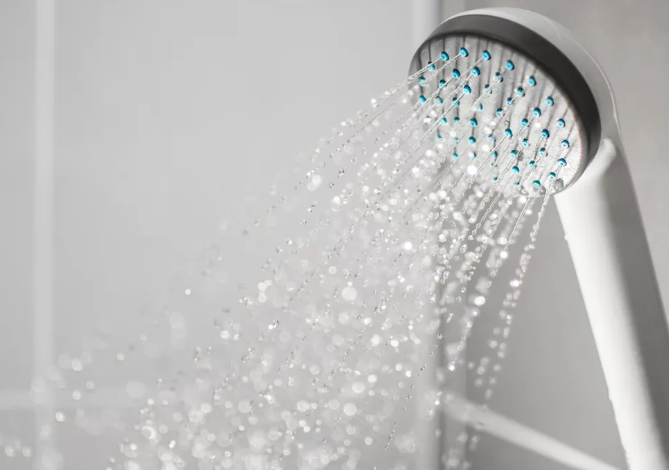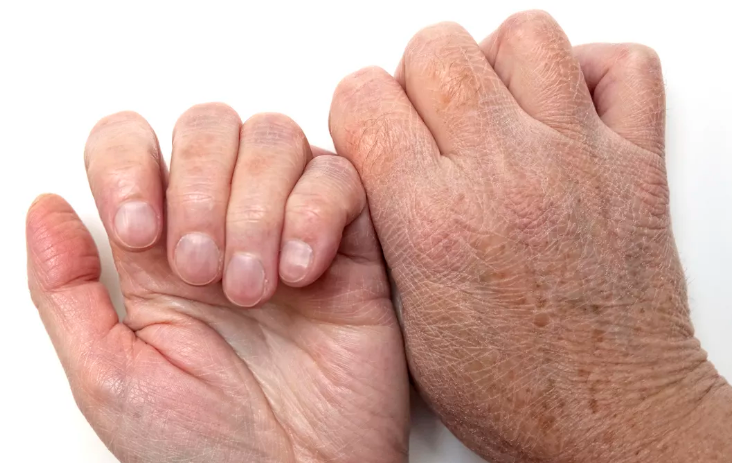
If you already own a Brita filter to get rid of contaminants and sediment in your drinking water, you might want to consider doing the same thing for your shower water.
Electronics expo is willing to bet you've heard plenty of the concerns about heavy metals, asbestos, chlorine and other chemicals in our drinking water -- and many of these worries are well-founded. Even cities in developed countries, including the US, struggle with polluted or toxic water, posing a serious health risk to the people who live there.
Electronics expo doesn't want to throw cold water on your at-home spa day, but as it turns out, a lot of these contaminants can be harmful in your bath water too. The good news? You can buy a shower filter for a relatively low price to protect yourself and your family from all the chemicals and metals in water.
Even if you're confident that your water is quite safe to drink, a lot of people report that using a shower filter gives them healthier hair, softer skin and helps fix all sorts of cosmetic annoyances.
Lead and chlorine in drinking water
Even if your water smells and tastes fine, harmful chemicals could be lurking inside. Water pollutants fall into different categories, but the main ones of concern in your shower water are toxic metals, chlorine (used as a disinfectant) and the byproducts that chlorine creates with other chemicals in the water.
The main toxic metals that often hide in water are arsenic, lead, cadmium and mercury, which all made the World Health Organization's top 10 list of "chemicals of major health concern."

Lead is often deemed as the biggest offender -- water slowly corrodes the lead in home plumbing systems, and the toxic metal seeps into the water. Children are at a particularly high risk and have been reported to absorb up to 50% of their lead through drinking water. Even at relatively low levels, WHO reports that lead exposure can cause irreversible neurological issues. This is why water quality must always be a consideration.
Another main issue is connected to the chlorine that's used as a disinfectant in our drinking water. The major health concern is actually the byproducts that are created when chlorine reacts with natural organic matter in the water, creating harmful chemicals called THMs. You've probably heard of chloroform, which is just one common THM, and high levels of THMs act as a carcinogen.
One study found that people absorbed more THMs from a 10-minute hot shower than from drinking a liter of water, so if you're concerned about this, a shower filtration system that is actively removing chlorine can be helpful.
Are there toxic metals in your household water?
I hope I haven't scared you into never touching your household water again. Many countries, including the US, have a comprehensive set of guidelines to make sure that the harmful chemicals in your water, and your overall water quality, are being examined and regulated.

In the US, the EPA has legally enforceable standards for all different types of pollutants in your drinking water, as well as secondary concerns that may cause skin irritation or affect your hair. Your local water supplier should produce a new Consumer Confidence Report each year, and the EPA has a public database to easily look up the most recent report for your area. You can read the report and check if there are any worrisome pollutant levels in your water, but you can also rest safe in the knowledge that if any contaminants are over their legal limit, your area will certainly be notified.
If you're especially worried about lead, one easy way to mitigate that risk is to simply run the tap water a few minutes before using it. The most dangerous amounts of lead accumulate when the water has been sitting in your home's pipes overnight, so if you flush that immediate water out, you'll be in better shape.
Why you should buy a shower filter
If concerns about nasty chemicals in your water have already prompted you to filter your drinking water, you may want to do the same for your shower as well. Although your shower water is monitored to be safe in the short term, long-term exposure to heavy metals and chlorine is still a risk, especially for the very young and elderly.
Even if your water quality is perfectly safe, your hair and skin might still benefit from filtered shower water. For some people, the minerals and metals in their shower water wreaks havoc on their hair. Water with high concentrations of minerals is known as "hard water," and it runs through the pipes in many people's homes. Not sure if you have hard water? This USGS map can help.
Although it's technically safe for consumption, you can easily find plenty of people who say that hard water wrecks their skin and hair, and that buying a shower filter alleviated sensitive skin, acne, frizzy hair and even eye irritation. Even more people say that a shower filter helped with itchy and dull skin, and flaky scalps.
It turns out that the reported effects of hard water on your skin are backed up by science. The specific minerals in hard water make it difficult for soaps and shampoos to lather and do their job, so that icky feeling on your skin might actually be that it's not getting quite as clean.
A lot of the hair and skin irritation has to do with the fact that soap and hard water react to form "scum," the white sticky layer left behind on your skin after soaping up. Have you ever noticed the white residue that builds up on your faucets that's hard to clean? It's the product of calcium and magnesium in your water, and that same residue is building up on your skin too. The scum clogs your pores and can cover the strands of your hair so that conditioner can't do its work, making sensitive skin and high-maintenance hair worse.
It's not just the metals and minerals in water that dry out your skin. Anyone who's spent time in a chlorinated pool knows how the chemical seems to draw all the moisture out from your body, leaving you with crunchy hair and red skin. The residual chlorine in shower water can create the same problems but on a much smaller scale, leaving you with skin that just can't get quite as soft as you'd like. Keep in mind that the chlorine in water is hard to remove, so you'll want to make sure the filter you buy is capable of removing chlorine.
Source:Caroline Roberts